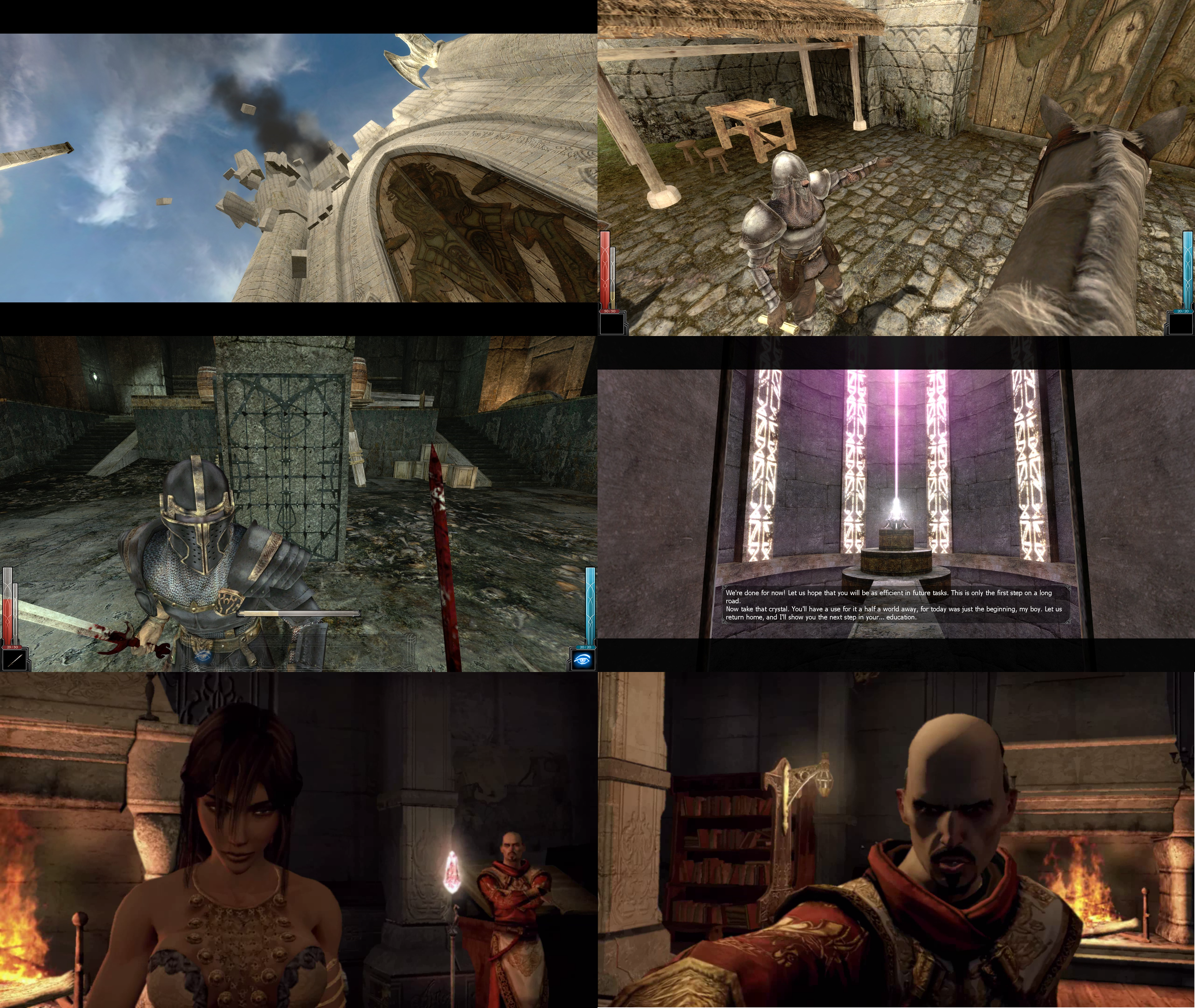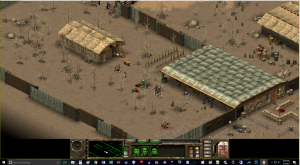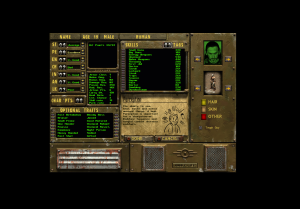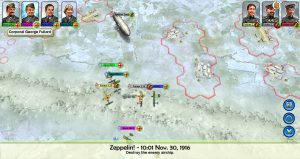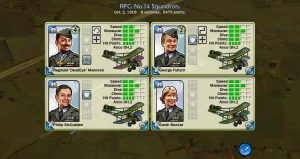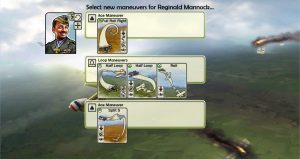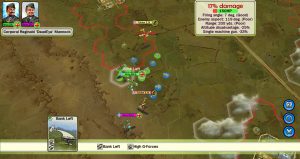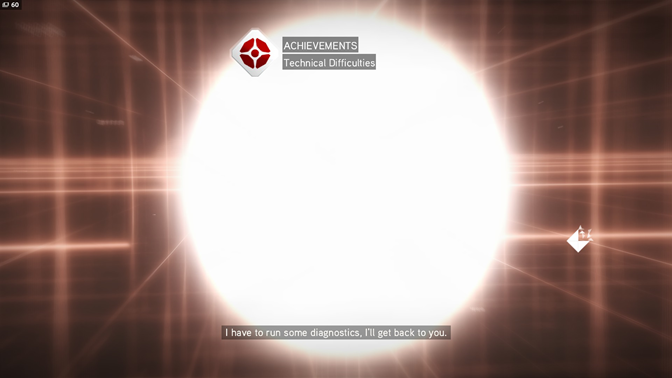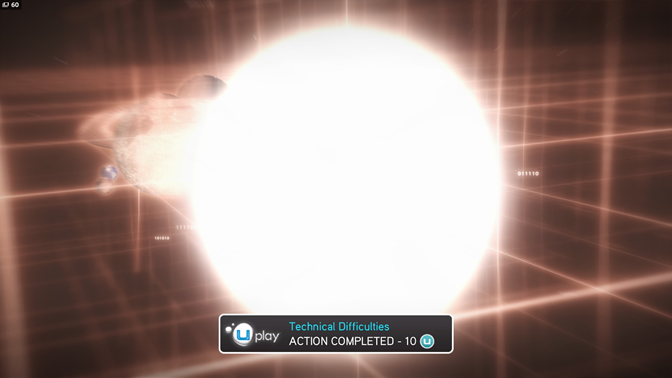The Second Encounter
I loaded this up, started out, and thought: “Hmm…this looks suspiciously familiar. Like, exactly the same as the first game. Hmm…yep. Same desert, same oasis. Though it’s raining this time. Or maybe I just didn’t notice that the first time.” Turns out, the Second Encounter was much like a DLC pack for the First Encounter. And (on Steam at least) if you own both, the First Encounter levels are imported into the Second Encounter game. Since The Second Encounter is basically more of the same, I’m sticking with my original assessment for this one – Tier One.
That being said, I do have one complaint I didn’t mention in my impression of the First Encounter that has grown to irritate me quite a bit while playing: most enemies teleport in – which means that you’ll frequently be attacked from behind by things that weren’t there five seconds ago. This feels like a cheap way of increasing difficulty without really making things more challenging. Having a single type of enemy do this or having it happen on certain levels would make sense. But when it is the primary method of fighting, it grows tiresome after a while.
The Random Encounter
This is a 2D, turn-based RPG based on Serious Sam. It’s a parody of Serious Sam, which is itself a parody – and it just doesn’t need to exist. It isn’t particularly fun. There are better ways to spend your time. Don’t play it. It goes to Tier Three, narrowly escaping Tier Four only because it isn’t aggressively bad all the time.
Serious Sam 2
The First and Second Encounters have a classic charm to them. Sam makes occasional one-liners that are atrociously bad, but intentionally so – and it’s forgiven because it only happens sometimes. Somewhat like old Duke Nukem. There’s real challenge to be found (even ignoring the stupid teleporting monsters). But in the SS2, there’s an inexplicable return of the lives system which hasn’t made sense since you could save your game. The art is cartoonish and suffers from what I can only call early-2000s 3D syndrome, where everyone was trying to make things look cool and new, but ended up making games that have aged terribly – worse even than Classic Serious Sam. This one, too, must be sent to Tier Three – though I may look at it again if I beat all the other games.
Serious Sam: Double D XXL
Why? Why does Croteam think licensing Serious Sam out for cross-genre games is a good idea? This time, it’s a sidescrolling shooter. It doesn’t work well either – though better than the Random Encounter. Within five seconds, I’m given two tutorial messages that completely stop gameplay. I’d like to imagine Serious Sam from The First Encounter punching the robot telling you these things, especially when the robot even admits that it’s something Sam would already know. It doesn’t make it better just because you’re being self-aware about it. I know the things can teleport. They just did. Right in front of me. Just let me shoot the things. Tier Three again, but mostly because it pushed my game-hating buttons. The actual gameplay might not actually be terrible. I didn’t care to play long enough to find out.
Serious Sam Classics: Revolution
This is an indie remake of the original Serious Sam First and Second Encounters. It’s different than the HD remasters. No, I don’t know why there’s another one – though this one is in Early Access. Once again, I find myself in a desert with a hidden area at an oasis. It’s also raining this time. It’s going into Tier Two because at this point, I’ve played the First and Second encounters enough, and this remake just doesn’t capture the same charm as the original for me. Or I’m just tired of playing through Egypt. The HD remasters are what you should play.
Serious Sam 3: BFE
Having played Doom, I was totally wrong in my guesses about what BFE meant, though I honestly couldn’t figure out the E (Egg? Echydna? Exarch? Eyes?). Then I learned it was a prequel – so it stands for Before First Encounter. That’s less entertaining than I was expecting. Much like the game itself. I started up a new game and was greeted by … Call of Duty? Did I start the wrong game? Oh. oh… On the plus side, after it got rolling, things improved and I was soon bashing and shooting my way through thick waves of classic monsters. While I’m not sure I agree with the inclusion of such powerful melee attacks (almost prescient to DOOM, even), the early fights were satisfying and sufficiently challenging to pique my interest.
Of course, there’s a problem when they introduce the screaming fellows. You know the ones. If you don’t, you’ll soon come to love them (if you play this game). The problem is, it’s the EXACT same moment as the First Encounter. I believe Sam has the exact same dialogue. And that’s really the problem I’ve been noticing with these games. Croteam made 1.5 good Serious Sam games (since the Second Encounter was expanded DLC) and have just been repeating the same game ever since. First they made SS2, but went too far afield. Now, they are trying a return to form, though I’m not sure if it succeeds. So for now, this too will go into Tier Two – since I think it’s probably worth picking up later, after I finish the HD remasters.
On an entirely unrelated note: Croteam’s later release, The Talos Principle, is worth a shot if you like puzzle games – very different than Serious Sam, but even better in its genre than the First Encounter.
